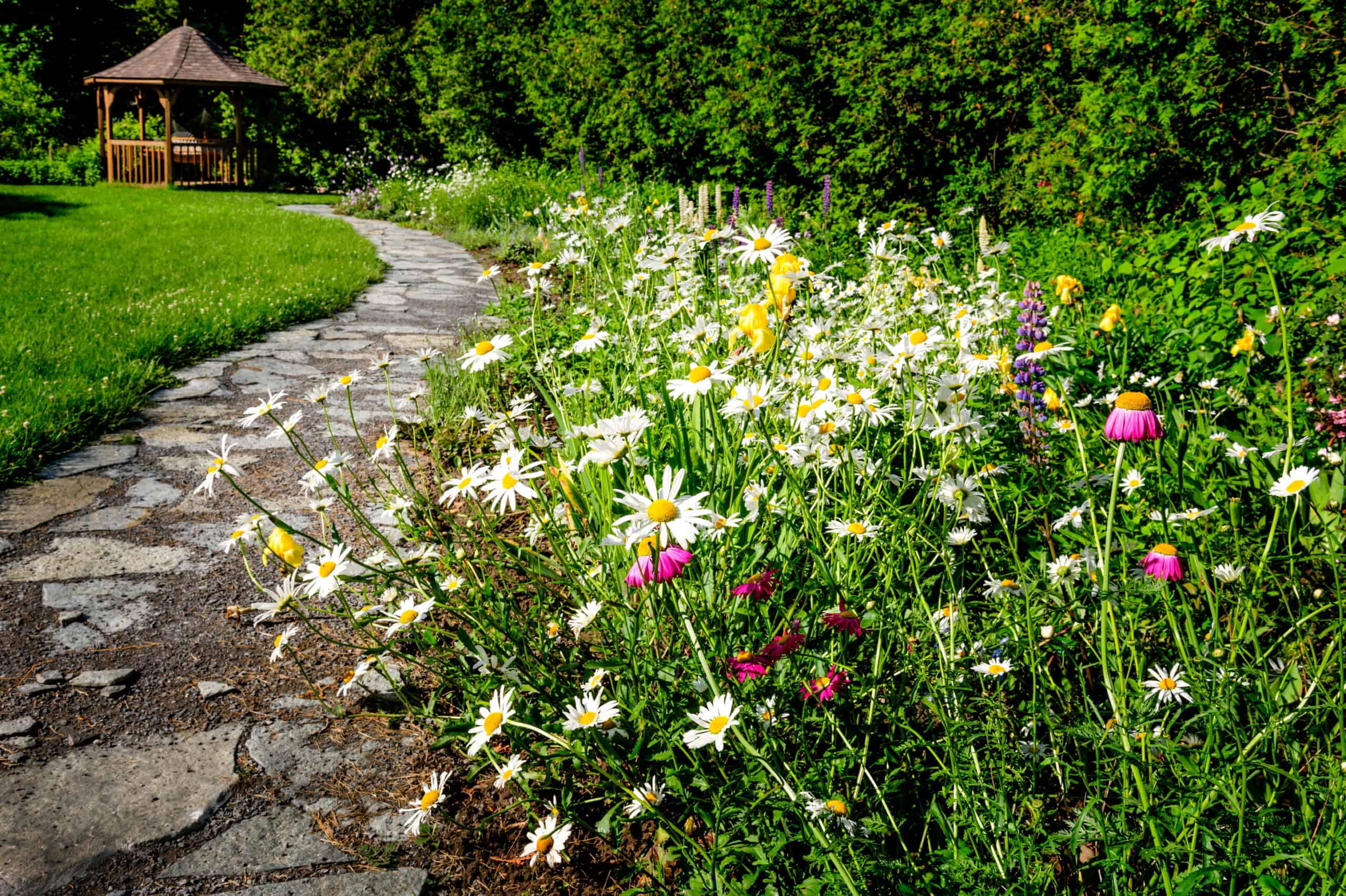
Did you know that the type of lawn you have can contribute to global warming and significantly impact energy and water consumption? It's true! From overwatering to using gas-powered lawn mowers and spraying chemical fertilizers, there are several ways in which your lawn care routine could wreak havoc on the environment. So what is there to do? When guests visit, your lawn is the first chance to make a first impression. Thankfully there is no need to stress; you can make many simple and easy changes to reduce your lawn's effect on the environment while keeping it healthy and beautiful. Let's dive in and explore some tips and tricks to help you create a beautiful, eco-friendly yard!
Switch to native grasses and plants
The average American lawn looks like a plot of short dark green Kentucky Bluegrass. There may be a couple of bushes and flowers near the front door, but other than that, not much is likely to vary. This has been the norm for many years. So much so that it's also most often even required by local homeowners' associations. Yet the practice of maintaining lush green grass lawns can be more damaging than you might imagine.
Despite the neat, clean aesthetic of a well-groomed Kentucky Bluegrass lawn, the amount of water and fertilizers needed to keep it healthy in a non-native environment can be substantial. Native grasses, on the other hand, are much more accustomed to their environment and are more likely to survive on the natural rainfall experienced in the area. Because of this, switching to native grasses and plants can help combat water waste and erosion by significantly reducing how much you need to water your lawn and avoiding unnecessary runoff.
Provide habitat for wildlife
When creating the perfect lawn for your home, you may realize that your local wildlife is often pushed to the side. Your main concern may be to build the most beautiful, easy-to-maintain outdoor space possible. However, it's essential to understand the importance of the little creatures in your area. Bees alone are one of the world's most important pollinators, yet they are continually and increasingly under threat by human activities. Creating a habitat for local wildlife by providing food, water, and shelter can help maintain some balance in your local ecosystem. For example, planting local flowers for bees to pollinate or installing bird feeders and baths can make a big difference.
Opt for natural fertilizers
Synthetic fertilizers are one of the number one culprits when it comes to environmental damage. It may seem convenient to ensure your grass is always greener by buying a bottle of chemicals certified to get the job done. Yet, while these products work well, they are eventually washed away with the rain and, more often than not, end up in our waterways. Avoid this by opting for natural fertilizers like compost, manure, or bone meal. Your lawn will be happy, and you can avoid adding chemicals to your local ecosystem.
Collect rainwater
Installing a rainwater harvesting system is one of the easiest ways to maximize your resources while reducing your energy consumption. By installing a simple barrel, in-ground tanks, or even a cistern in your yard or garden, you can gather the water needed to keep your plants alive without having to rely on the treated, energy-intensive water pumped to your home. You could even use the water you have left over to wash your car, flush your toilets, or for other non-potable uses.
These harvesting systems can even help prevent erosion by collecting the water that would otherwise run off the roof and other impervious surfaces, taking essential soil with it, and keeping the native ecosystem from thriving as it should. Watering plants with untreated rainwater permit you to provide water where it's needed most. They help give your plants the nutrients and minerals they need to thrive and create a system where your yard can support the ecosystem instead of depleting its resources.
Use eco-friendly lawn care practices
Keeping your yard looking tidy and trimmed requires some manpower. To avoid contributing to global warming and air pollution, swap out your gas-powered mower and leaf blower for a manual push mower and a rake. You could even let your grass grow longer than usual to promote healthier roots and save water.
The name of the game is supporting ecological diversity. Climate change impacts us all. For those looking to help fight for the planet, making changes at home is the perfect way to start. To learn more about how your actions impact the environment, the connection between energy, global warming, the importance of water, and more, visit Resourcefulness.org! Also, remember to follow us on Instagram and Facebook.
We'd love to help answer any questions and help you get started! Drop us a line and we'll get back to you as soon as we can.
Watt Watchers of Texas
204 E. Dean Keeton Street, Austin, Texas 78712
contact@watt-watchers.com
Nos encantaría contestarle cualquier pregunta que tenga y ayudarle empezar! Envíenos un mensaje y nos pondremos en contacto con usted lo antes posible.
Watt Watchers de Texas
204 E. Dean Keeton Street, Austin, Texas 78712
contact@watt-watchers.com